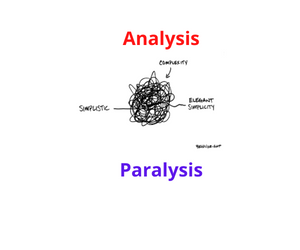Two out of three ain’t bad. You have probably heard of the expression crypto currency; Bitcoin is the poster child, and Ether its sibling. ICOs are likely just as familiar; Initial Coin Offerings, which are a a variation on IPOs. What about CCOs? Never heard of them? The extra C is for Collateral; collateralised coin offering. I am advising a client on a really interesting CCO offering, so now seems a good time to offer a view on what might be the new, new thing in the digital space.
ICO
An ICO is a means of raising capital. Rather than a traditional prospectus or offering memorandum, it is based on a White Paper, which outlines what the company will do with the proceeds.
This activity is very similar in nature to what happens in the traditional securities & banking world, with the result that regulators are beginning to flex their muscles and draw some lines to weed out bad actors. The SEC has just closed down PlexCorp for fraud; the company was promising monthly returns north of 1’000%.
As far as I can tell, most ICOs are simply asking for money saying they will do A, B or something completely different, without much in the way of a concrete business plan. The rise of the internet and the instantaneous nature of global communication means that it is very easy to spread a message about any ICO and as a result it is more likely you can find somebody, somewhere to give you money. If you invest, you need to be able to lose your money. As the saying goes: not for widows or orphans.
Crypto
A crypto currency is largely a digital figment of the imagination; an imaginary value is placed on them. My view is that they are the same as art; they may be scarce and they are simply worth what somebody is wiling to pay. In truth, they have the same backing as any government issued currency; none. They both rely on trust. So far at least, officials believe that people have more trust in government than in private companies. At least this was the view offered by a Fed Governor recently on why a crypto currency would not undermine the US dollar. In Venezuela right now, you would be mad to suggest the same rules apply. You gotta have faith; in the former there is some, in the latter there is none.
A digital dollar
The same article cited the Head of the NY Fed as saying the Fed is looking at Crypto currency. This would be really welcome. In my opinion, the Fed and its fellow Central Banks are too slow on the uptake here.
For the CCO project, we will need to collect both fiat and crypto payments from buyers of the CCO. Crypto is easy and we can make it very close to a PvP, Payment vs. Payment process. Very close rather than exactly, because we need to do an FX trade to move from crypto to fiat to buy the underlying asset. Fiat is actually hard and involves some good old fashioned settlement risk for our clients; we have to collect up their subscriptions before we issue the coins. It would be a lot easier if we could accept digital Euro and Swiss Francs.
Actually, there is a digital version of the Euro and the USD; Tether. It is a private offering and claims to be 100% backed by deposits in fiat currency. This is really very much the same as somebody in Kenya giving money to their local mobile phone operator to load an M-Pesa balance on their phone. But, and it is a big but, these Tether coins will not be fungible with any other offerings doing the same thing. Imagine if you could not move the dollars in your account at Citibank to your account at JP Morgan. Add to this, you are moving your trust from banks to a start-up enterprise that is not a bank and does not have all the checks & balances that a bank has. Novel, perhaps even necessary in short-term as a step on a longer journey, but not an answer for the long term and not fit for purpose for the institutional market.
CCO, the Collateralised Coin Offering
This is like an Asset Backed Security. Understanding that you are making a sound investment means knowing a couple of things about the underlying asset; is that asset both liquid and non-volatile? Bitcoin is none of these, and even some of the major ABS products of the past turned out to have a lot more price volatility than anybody envisaged. MBS, Mortgage Backed Securities, offered comfort in in that there was an underlying asset if the payments were not made; as we now know, not all of those mortgages were equally sound.
The second factor is about the transparency of the underlying assets. This is where a certain Bernie Madoff hoodwinked all and sundry. The assets were not there. Now Tether, cited above, may be technically brilliant and it says it has the assets, but it is fatally flawed in a worst case scenario. The only place Tether can keep its $800+ million in assets is at one or more commercial banks. That is a lot of credit risk. Cash assets have very limited protection in a bankruptcy; the 100k or so that might be backed by one or other government depositor insurance schemes will not help much.
Lessons to be Learned
The ideal source of power for transactions in a digital global economy would be CBDM; central bank digital money, with the government acting as transfer agent, providing a 1:1 instant on-demand exchange facility and then locking up the fiat currency at the central bank.
Singapore is getting there with its project UBIN. The banks are trying to fill this void; UBS is leading a consortium developing a Universal Settlement Coin.
Those individual efforts are a necessary stage of the journey; regulators and central banks may well observe from the touchlines and then support the infrastructure with carefully worded regulatory guidance. This has happened in FX, with the BCBS stating in BCBS 241 on FX Settlement Risk that PvP, Payment vs. Payment, is the preferred settlement option. There is only one PvP utility available; CLS.
CCOs have the potential to establish themselves in the same generally positive way that the traditional ABS products did. To do that, they ideally need to be linked to an asset that does not have a volatile price and where the underlying assets are transparent and not subject to further issuer risk.
The CCO I am working on promises to do both those things. Super exciting. More in due course.
About the Author: The Bankers’ Plumber. I help banks and FinTechs master their processing; optimising control, capacity and cost.
If it exists and is not working, I analyse it, design optimised processes and guide the work to get to optimal. If there is a new product or business, I work to identify the target operating model and design the business architecture to deliver those optimal processes and the customer experience.
I am an expert-generalist in FS matters. I understand the full front-to-back and end-to-end impact of what we do in banks. That allows me to build the best processes for my clients; ones that deliver on the three key dimensions of Operations: control, capacity and cost.
Previous Posts
Are available on the 3C Advisory website, click here.
Publications
The Bankers’ Plumber’s Handbook
Control in banks. How to do operations properly.
For some in the FS world, it is too late. For most, understanding how to make things work properly is a good investment of their time.
My book tries to make it easy for you and includes a collection of real life, true stories from 30 years of adventures in banking around the world. True tales of Goldman Sachs and collecting money from the mob, losing $2m of the partners’ money and still keeping my job and keeping an eye on traders with evil intentions.
So you might like the tool kit, you might like the stories or you might only like the glossary, which one of my friends kindly said was worth the price of the book on its own. Or, you might like all of it.
Go ahead, get your copy!
Hard Copy via Create Space: Click here
Kindle version and hard copy via Amazon: Click here
Cash & Liquidity Management
An up to date view of the latest issues and how BCBS guidance that came into force from Jan 1 2015 will affect this area of banking. Kindle and hard copy.
Hard Copy via Create Space: Click here
Amazon UK: Click here
Amazon US: Click Here
Share on:




